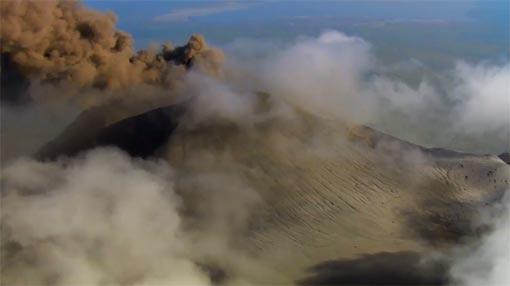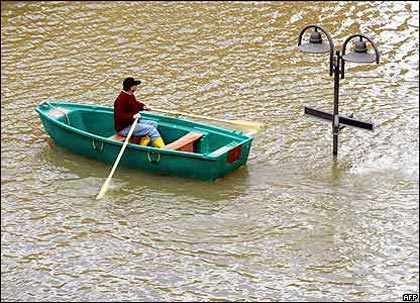You are hereWcP.System.Thinker's blog
WcP.System.Thinker's blog
488 hrs of footage, shocking aerial shots - Earth depleted & destroyed fast & faster - docu film HOME'09 covers 50 nations
Faster & faster. In the last 50 years, massive depletion of Earth has been destroying a fragile balance in Nature, essential to life, putting all human beings in check: shall we act before too late to save Earth, home for all? ... Ice is melting, poles diminishing, sea level rising, Greenland fresh water pouring into the ocean & becoming salt water, severe draughts lingering, 1 out of 10 major rivers incapable of reaching the sea, 20% of Amazon deforested due to demand on soy manufacturing to feed livestock... What is the real terror threatening our home, depriving our children’s chance to survive? It is the destructive depletion of Earth that has been destroying our planet, faster & faster. Driven by Greed. Shall we act before too late to save Earth, home of all?
(click on image to see the documentary on Youtube)
Spend wise - Guardian to Purse; waste less - Angel to Earth. Poll: protecting the planet given priority over economy growth

"Do well by doing good." - Ben Franklin
"Spend wise - Guardian to Purse;
waste less - Angel to Earth." - LuCxeed
(quote)
The power of the purse is the most democratic power of all. Global warming & great recession sees the rise of ethical consumerism.
Cycling maps, bike routes - bicycle tours in Europe and connecting America by bicycle, 14,000 miles in 27 states

(quote)
United States Bicycle Route System taking shape
EuroVelo & USBRS. Bicycle route system project is part of a global trend, as countries & provinces establish national cycling networks — composed of on-road and trail facilities — to make cycling easier and more enjoyable in urban, suburban, and rural areas. Examples include the National Cycle Network in the United Kingdom, La Route Verte (the "Green Way") in Quebec Province, the D-Route Network in Germany, and VeloLand Switzerland. The U.S. Bicycle Route System (USBRS) to be established could become the largest national cycling route network on the planet. These systems are spurring major growth in bicycling and other non-motorized trips, with corresponding reductions in fossil fuel consumption and greenhouse gas emissions. read more »
To fight deforestation, Kenya in poverty ($857 GDP/capita) pledges to spend $20 billion & plant 7.6 billion trees
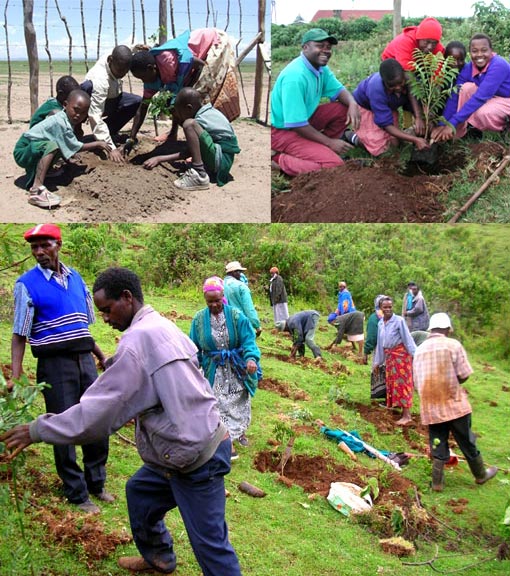
(quote)
*Update* 2019
Ranking/Country/GDP-capita
1 Luxembourg 114,234
2 Switzerland 82,950
— Macau 82,388
3 Norway 81,695
4 Ireland 76,099
5 Iceland 74,278
6 Qatar 70,780
7 Singapore 64,041
8 US 62,606
9 Denmark 60,692
10 Australia 56,352
11 Sweden 53,873
12 Netherlands 53,106
13 Austria 51,509
14 Finland 49,845
15 San Marino 48,946
— Hong Kong 48,517
16 Germany 48,264
17 Belgium 46,724
18 Canada 46,261
19 France 42,878
20 UK 42,558
21 Israel 41,644
22 New Zealand 41,267
23 United Arab Emirates 40,711
24 Japan 39,306 read more »
Earth has a fever? Rising sea temperature near worst-case prediction. Bear clings to cracking ice. Street under water
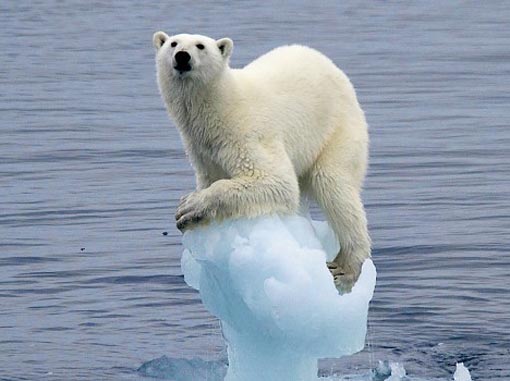
(quote)
The ocean is warming about 50 percent faster than reported 2 years ago, near the worst-case predictions of the 2007 report by the United Nations' Intergovernmental Panel on Climate Change. The heavy rain & severe flooding paralyses central Europe: houses were swept away by rising floodwaters. In England and Wales, around 5 million people in 2 million properties live in flood risk areas.
Rising ocean temperatures near worst-case predictions
The ocean is warming about 50 per cent faster than reported two years ago, according to an update of the latest climate science. A report compiling research presented at a science congress in Copenhagen in March says recent observations are near the worst-case predictions of the 2007 report by the United Nations' Intergovernmental Panel on Climate Change. In the case of sea-level rise, it is happening at an even greater rate than projected - largely due to rising ocean temperatures causing thermal expansion of seawater.
Staggering contrast. Untouched Nature's beauty vs human footprints: waste produced and garbage trashed: photos

(quote)
Photo: Kalalau Beach. The natural beauty and isolation of Na Pali were populated by Native Hawaiians continuously for six centuries through the early 1900s. In recent decades, however, it has lured half-million visitors annually who hike its trails, camp overnight in its valleys, buzz over its 3,000 foot cliffs in helicopters and, sadly, at times prove poor stewards of Na Pali. Inset: How much Beer will the average person consume in a lifetime? National Geographic Human Footprint looks at how beer is consumed by the average American over a lifetime.

Photo: Na Pali Coastline of Kauai. Inset: Have you considered the impact of the cars that you will own over your entire lifetime? National Geographic Human Footprint took at look and the numbers are staggering.
(unquote)
Photos courtesy of ecopreservationsociety.wordpress.com, secretofthecrystalskullsmovie.com / Diane Cook & Len Jenshel, Wings Over Kauai, and National Geographic
Original Source: Eco Preservation Society and Crystal Skulls
Nature fed up with animals being ill-confined, force-fed? 1st cows mad, then bird flu, now deadly virus from swine
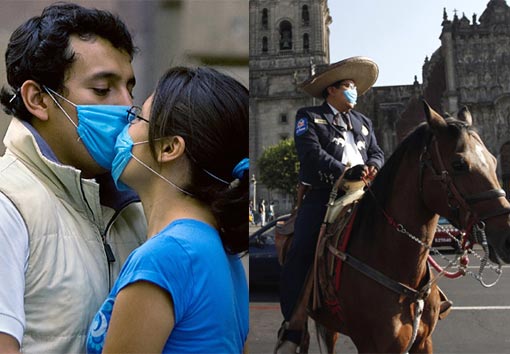
(quote)
While Indonesia's bird flu death toll climbs to 119, deadly strain (a nasty mash-up of swine, avian, & human viruses) of swine flu gets under radar of the immune system and pushes death toll in Mexico to 152 and climbing. "Residents [of La Gloria, Perote Municipality, Veracruz State, Mexico] believed the outbreak had been caused by contamination from pig breeding farms located in the area. They believed that the farms, operated by Granjas Carroll, polluted the atmosphere and local water bodies, which in turn led to the disease outbreak.  According to residents, the company denied responsibility for the outbreak and attributed the cases to ‘flu.’ However, a municipal health official stated that preliminary investigations indicated that the disease vector was a type of fly that reproduces in pig waste and that the outbreak was linked to the pig farms. It was unclear whether health officials had identified a suspected pathogen responsible for this outbreak." read more »
According to residents, the company denied responsibility for the outbreak and attributed the cases to ‘flu.’ However, a municipal health official stated that preliminary investigations indicated that the disease vector was a type of fly that reproduces in pig waste and that the outbreak was linked to the pig farms. It was unclear whether health officials had identified a suspected pathogen responsible for this outbreak." read more »


